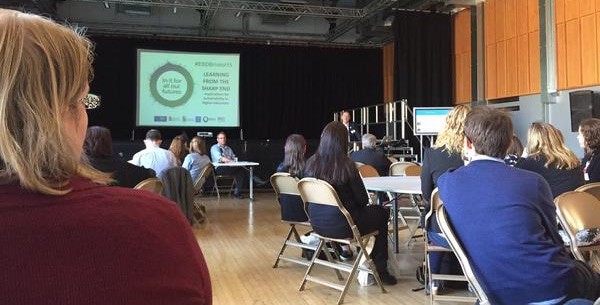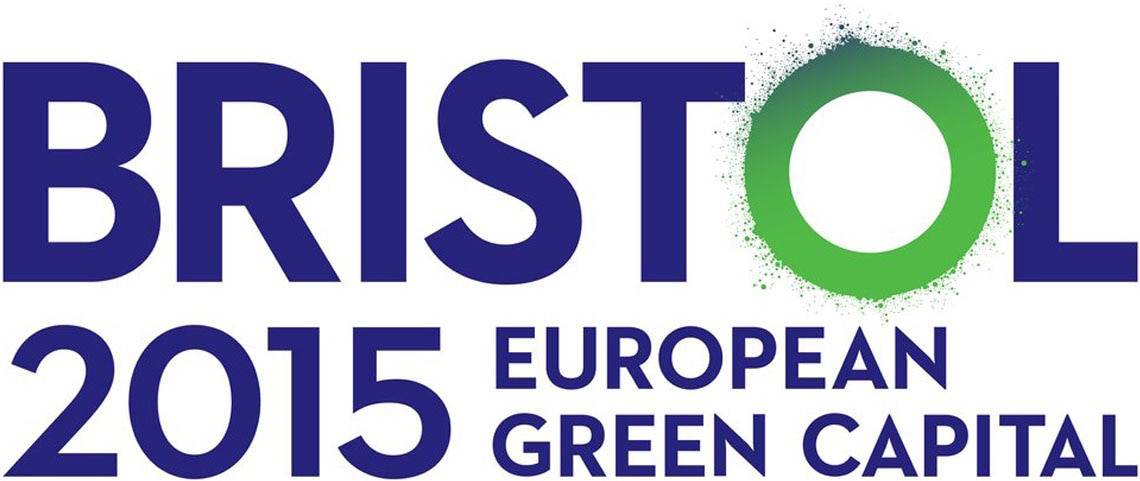Earlier this week, the Education for Sustainable Development Conference in Bristol brought together a range of higher education practitioners who work to increase student engagement with sustainability. Under the acronym ESD, universities bring together a broad range of initiatives that cut across the curriculum, as well as informal and co-curricular activities.

This set of diverse programmes and initiatives fits under the broad UNESCO definition of education for sustainable development: a “dynamic concept that encompasses a new vision of education that seeks to empower people of all ages to assume responsibility for creating and enjoying a sustainable future.” The overall aim of ESD is to empower citizens to act for positive environmental and social change, implying a participatory and action-oriented approach.
From a practitioner’s point of view, we rarely get the time to reflect on issues of effective pedagogy and social education for young people. The event provided an invaluable opportunity to share experiences and insights across institutions, and a useful space for reflection away from the busyness of programme delivery.
The conference was part of the Bristol European Green Capital initiatives that aim to make Bristol “a low carbon city with a high quality of life for all”. The student strand of this funding has been particularly ambitious – thanks to the support of HEFCE, it aims to deliver over 100,000 hours of student engagement with sustainability issues. The difficulty lies in translating this bold output into a range of outcomes that are going to be effective and efficient in delivering social change in Bristol.

While it is still early days for impact measurement, it is worth commending the approach that Bristol University and UWE have taken by working in partnership, building a collaborative approach across the two universities but also extending this to a much wider group of stakeholders across the community, including many civil society organisations. We’re proud that the Bristol Hub can get involved in contributing to the collective target of 100,000 hours of sustainability engagement through a range of student-led activities and programmes. The most exciting element of this is that it will no doubt generate a wealth of learning and insight for everyone involved, through exposure to diverse approaches to student social action.
The overarching challenge remains to drive up engagement in sustainability and social action among students. A lot of effort is being put locally in Bristol but also elsewhere on platforms and systems that increase visibility and access to social action opportunities for students. Innovative approaches such as the Skills Bridge website (to be launched in the next few weeks) showcase what is possible. However, as practitioners, we need to reflect on what is the best way to increase engagement amongst those who are currently not involved or are less likely to get involved in the first place. We know that around 30% of students volunteer while they’re at university. 1 in 5 students arrive at university without prior experience of social action, and many of those will graduate without being involved in sustainability initiatives, particularly when the majority of these experiences remain outside of the core curriculum. Our efforts need to go beyond online communications, ensuring that we provide better outreach to engage the ‘unusual suspects’ and those who face barriers to participation.
The case for universities to invest in education for sustainability is straightforward: institutions care about contributing to a better society, and this is nominally at the heart of their mission statements. Academics and practitioners alike recognise the need for students to develop the skills to navigate a complex future. In the wider environment, the Step Up to Serve government campaign is looking at doubling engagement in youth social action – which would mean seeing 60% of the student body participating in voluntary activities. The network of education for sustainability practitioners in UK universities is strong, with high levels of skills and energy in the sector. The challenge remains to see universities investing in their capacity to deliver sustainable and effective student engagement in this area of work.
We learned at the conference that students themselves are the largest carbon footprint that universities will produce, and that they will therefore have the most significant repercussions for society in years to come – a reminder that educating students to be active citizens involved in shaping a sustainable future needs to be at the core of their activities.
